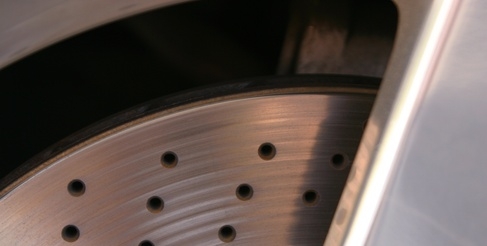
There are marked differences in the compounds and stopping ability of organic and semi-metallic brake pads, according to auto mechanic Austin C. Davis. Organic and semi-metallic brake compounds have different applictions and one pad should never be used as a direct replacement for another as they are designed for different purposes. Asbestos was once banned, and many mechanics believe asbestos brake material is still outlawed by the U.S. government, though this is not the case.
Organic brake pads have no metallic material, Davis reports. Organic brake pads are made up of various combinations of softer non-metallic materials and contain asbestos. Davis reports that organic brake pads are not as widely used as semi-metallic pads.
Semi-metallic brake pads have small pieces of "metal shavings in place of the asbestos material [that was once] banned by the U.S. government," states Davis. These pads create a harder, longer-lasting pad, but frequently cause brake noise or squeals that most drivers find irritating.
With their softer material, organic pads wear faster and, according to Davis, are unsafe for larger vehicles because the pads do not have the stopping power it takes to halt one effectively. Organic pads are only for use in vehicles they were designed for.
Davis argues that semi-metallic pads, unlike organic pads, "have great stopping power and have a long wear life." He does acknowledge that these pads are more likely to make noise though. It is these characteristics that make working with new semi-metallic brake pad materials difficult for mechanics, especially now that quieter asbestos pads are becoming prevalent in the industry once again.
In 1986 the US Environmental Protection Agency began a ban on asbestos brake pad material that would have resulted in a total ban of the material by 1996, according to the auto experts at AA1Car.com. This ban was overturned due to the number of Americans it would put out of work; however, asbestos OSHA limitations were then placed on auto mechanics to clean and dispose of asbestos brake dust properly to safeguard their health and the health of employees and customers. Asbestos is a harmful carcinogen when airborne, and brake dust is easily airborne. This is why most auto mechanics prefer not to work with asbestos pads; also, many mechanics still believe asbestos is banned by the US government.